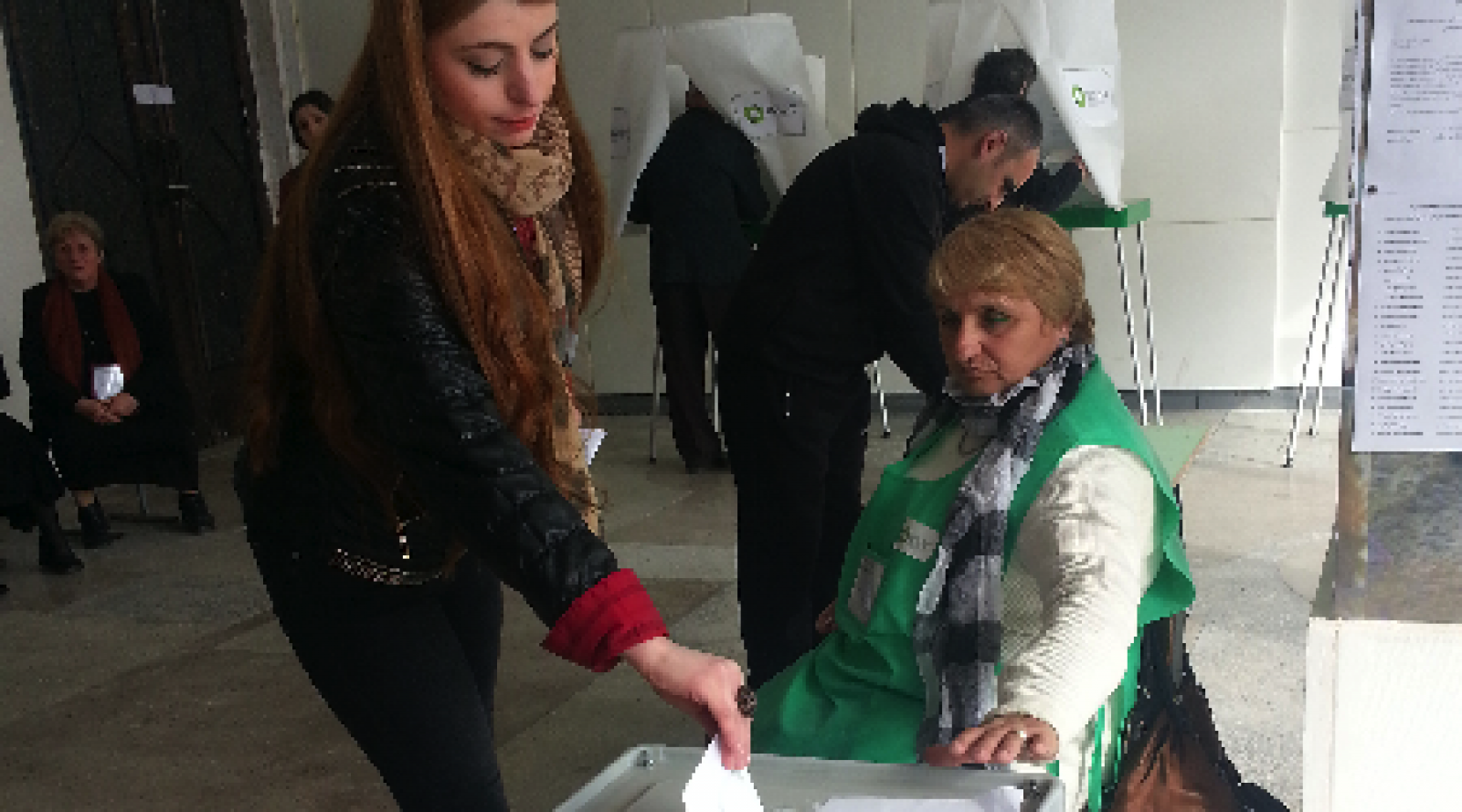
SHARE
Against the backdrop of a peaceful and smooth election day, Georgia demonstrated that the fundamentals of democracy are taking hold in a country where just 10 years ago a fraudulent election precipitated street protests that led to a change in government, the National Democratic Institute (NDI) said in a statement here today.
The Institute fielded an international observation mission for the Oct. 27 presidential election, which NDI said “represented further progress toward electoral democracy and set the stage for a second peaceful, democratic transfer of office among parties in a little more than one year.” Last October, the opposition Georgian Dream coalition secured a parliamentary majority from the United National Movement (UNM). This year’s election was to determine a successor to UNM President Mikheil Saakashvili, who was prohibited by the constitution from running again.
NDI said election processes largely complied with Georgia’s laws and international principles. “Moreover, the process benefited from active participation by credible opposition candidates, civil society organizations, the media and voters. These achievements suggest that competitive multi-party elections are becoming a routine feature of Georgian politics.”
However, the election also highlighted a number of trends that the mission said could adversely affect Georgia’s democratic trajectory. These included politically-motivated violence and intimidation against religious, political and sexual minorities; insufficient efforts to deter such pressure; a tendency to expect the results of elections at one level of government to extend to other levels; frequent rhetorical challenges to the integrity of candidates and the legitimacy of the elections themselves; politicization of electoral and government institutions; and a continuing atmosphere of polarization.
“Resolving these issues will require Georgia’s leaders to set an example by defending the rights of opponents and minorities, cooperating across partisan lines, sharing the responsibilities of governance, and upholding the country’s democratic institutions,” NDI said in a statement.
The Institute noted that attention will now turn to Georgia’s local elections, which are scheduled for May 2014. “These will provide new opportunities for voters to express political choices and for parties to build bases of support and put forward alternative visions for Georgia’s future,” the delegation statement said. “To contribute to Georgia’s democratic progress, it will be important for these elections to reflect the will of Georgian voters.”
The observation mission was led by Sam Gejdenson, former U.S. representative from Connecticut and a member of the NDI Board of Directors; Per Eklund of Sweden, former ambassador and head of the European Union delegation to Georgia; and Kenneth Yalowitz, former U.S. ambassador to Georgia. The Institute’s 20-member delegation visited 92 polling stations in 23 districts across Georgia. The mission builds on the ongoing observations of NDI’s long-term analysts, who have worked with the Institute’s Tbilisi-based staff since early August, and the findings of NDI’s September 2013 pre-election assessment.
The delegation visited Georgia from Oct. 24-29 and met with candidates, government and election officials as well as representatives of political parties, civil society, the media and the international community. The Institute noted that today’s statement is preliminary, pointing out that official results tabulation is not complete and there may be complaints to be resolved. It said it will continue to monitor the process and issue further reports when appropriate.
The mission was funded by the U.S. Agency for International Development. Also with support from USAID, NDI assisted the efforts of nonpartisan citizen groups to monitor the election process.
Published Oct. 28, 2013


